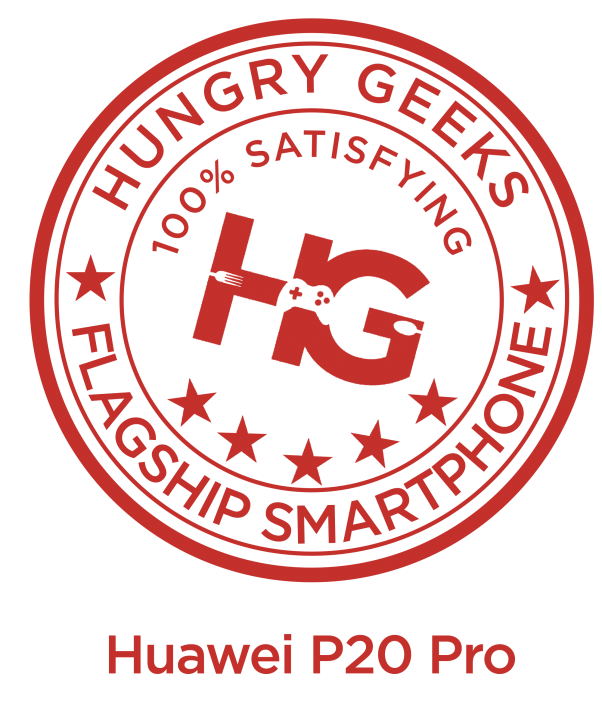
Last 2017, the game for the best camera experience is just got harder with more competition in the plate. As Huawei pioneered the dual-camera Leica systems in the Huawei P9, P10, Mate 9 and even Mate 10 series, they just literally outdone themselves with the new Huawei P20 series.
Primarily the Huawei P20 Pro, this model is the flagship of Huawei today that challenges any other smartphone such as the Galaxy S9, Google Pixel 2, iPhone X or even SLRs to its positioning as a device that takes great photographs. So how did it fair?
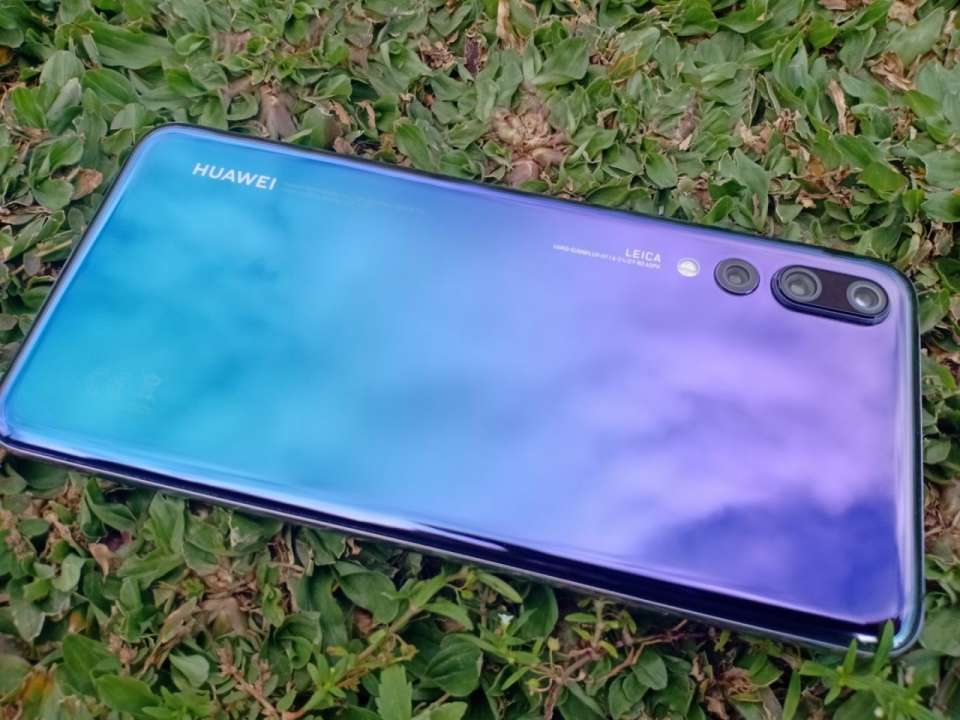
If there is one word that we always encounter when people see the P20 Pro, that is “Wow” cause of its catchy Twilight color. The back is made from glass with curved edges as similar how the Huawei Mate 10 feels in your hand, but the P20 Pro feels more compact thanks to its smaller 6.1″ screen and a better ratio of 19:9 due to the notch.
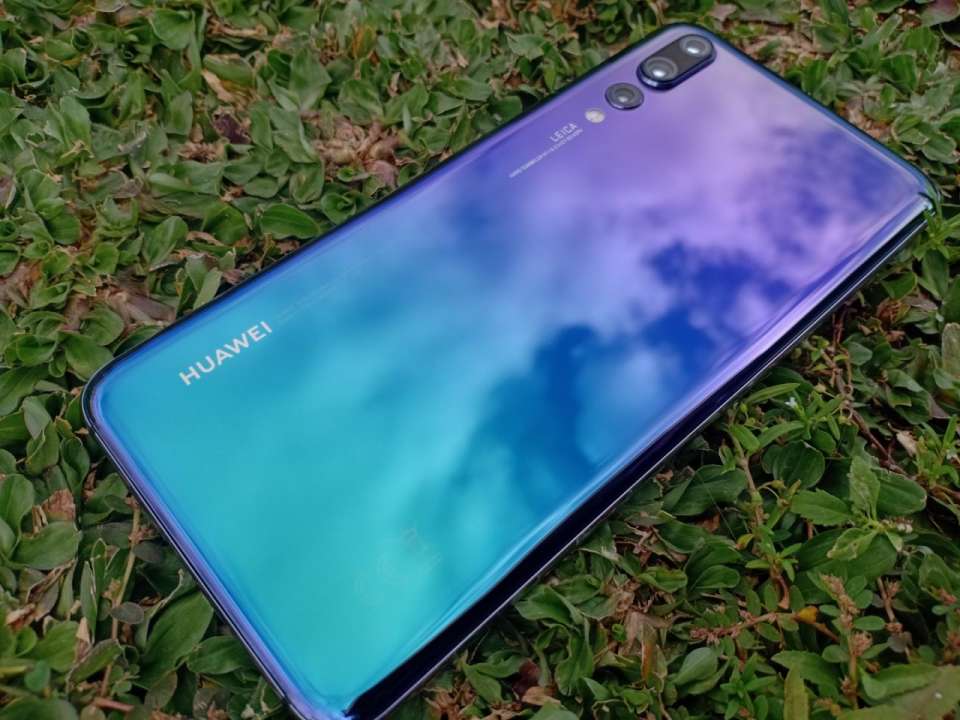
The side is made of metal with a chrome metal finish to make it glossy, small plastic champers can be seen at the front to divide the screen and body. Overall grip is pleasant and non-protruding as compared to older models as Huawei really made this phone seamlessly premium in impression. Weight is also solid, not light for a flagship but noticeable above average due to its 4,000mAh battery.
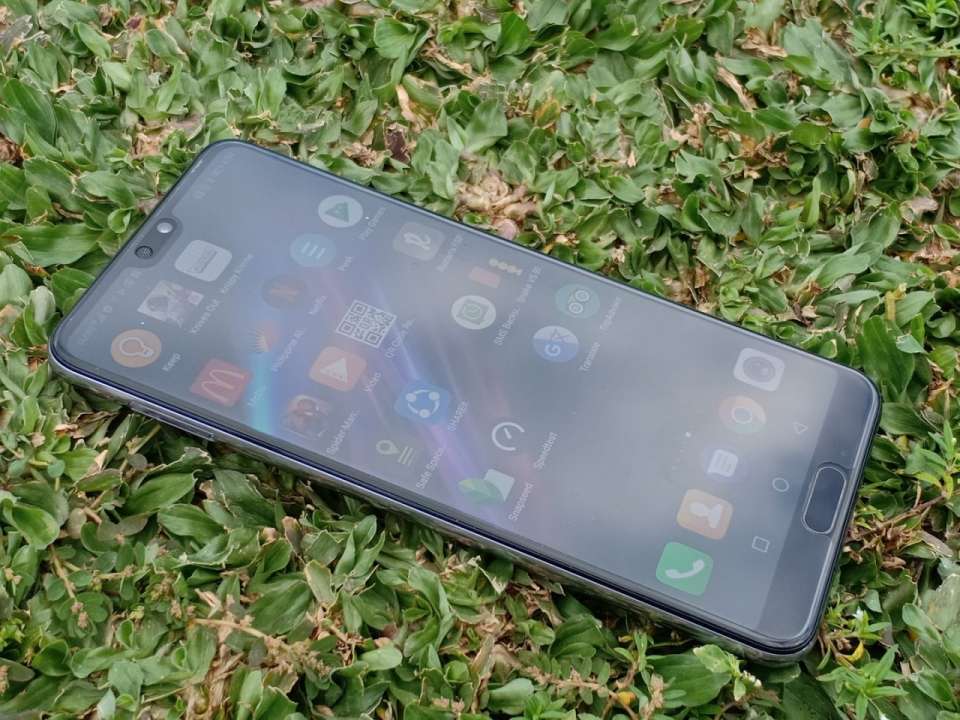
This included clear casing is been a tradition of Huawei since the P8 series and it does give a premium feel of inclusiveness despite the jelly feeling. If you are clumsy like us that drops our phone, then we really suggest to use the included casing or just buy a tougher one online.
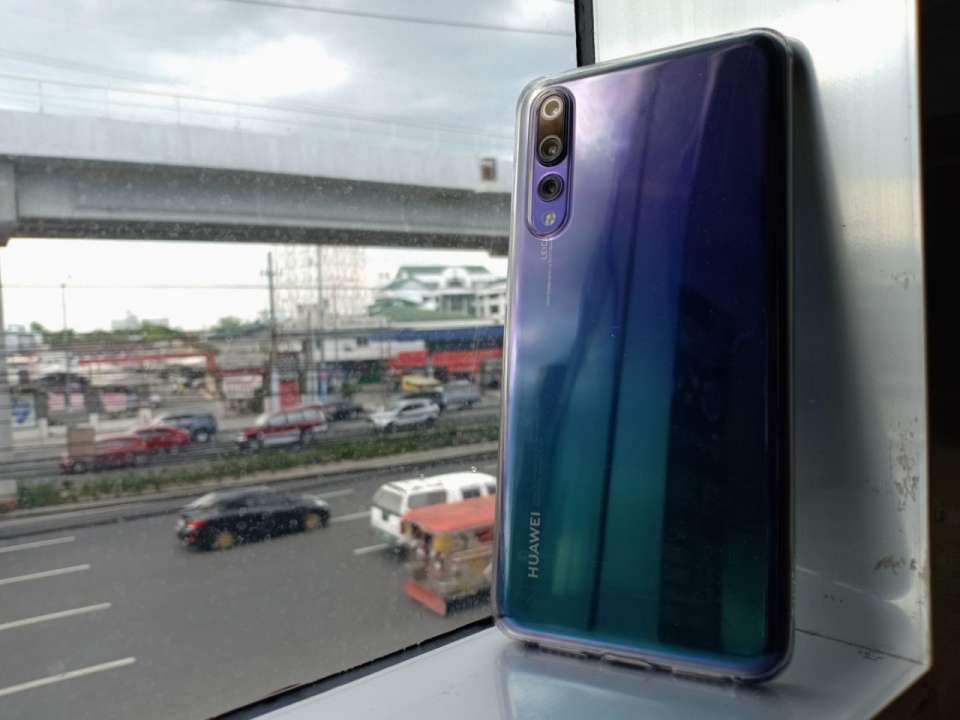
The 6.1″ OLED display has a resolution of 2,240×1080 or Full HD+, enough for today’s social media consumption. We are actually glad that Huawei didn’t give into the 2k display craze as it just simply consumes more battery and heat for minor details. Unless the screen can be 120hz in refresh rate, then we will welcome the 2k resolution.
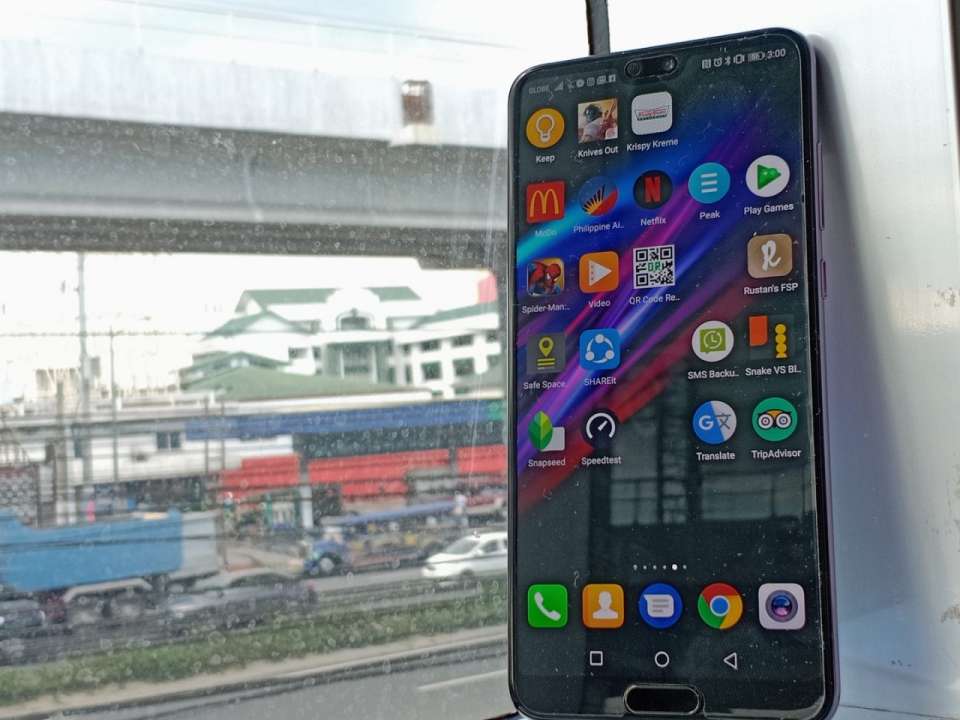
Details are crisp and have good brightness by jacking up the saturation and brightness to maximum in broad daylight. Just be aware of some temperature heating when in this condition, mostly 10 minutes in maximum brightness is already unpleasant to use.
Overall the screen is what you can expect to a flagship smartphone, added the OLED display that is better in black colors as compared to IPS. It’s just a little bit lower in Super AMOLED when you compare the two in our preference.
The Huawei P20 Pro shares the same Kirin 970 processor from the Huawei Mate 10 series, though a jump in performance is more noticeable thanks to the upgrade of OS to Android 8.1 and better EMUI.
Our Mate 10 Pro faired at 180k at AnTuTu while the P20 Pro reached the 200k points. A sign that this performance enhancement is thanks to software optimization.
With a 6GB RAM paired to the processor, the P20 Pro can handle most applications easily. It will really depend more if you have the right equipment like fast internet and even rich content to use the phone with. In our experience, Facebook lags due to lack of speed on the internet rather than the phone.
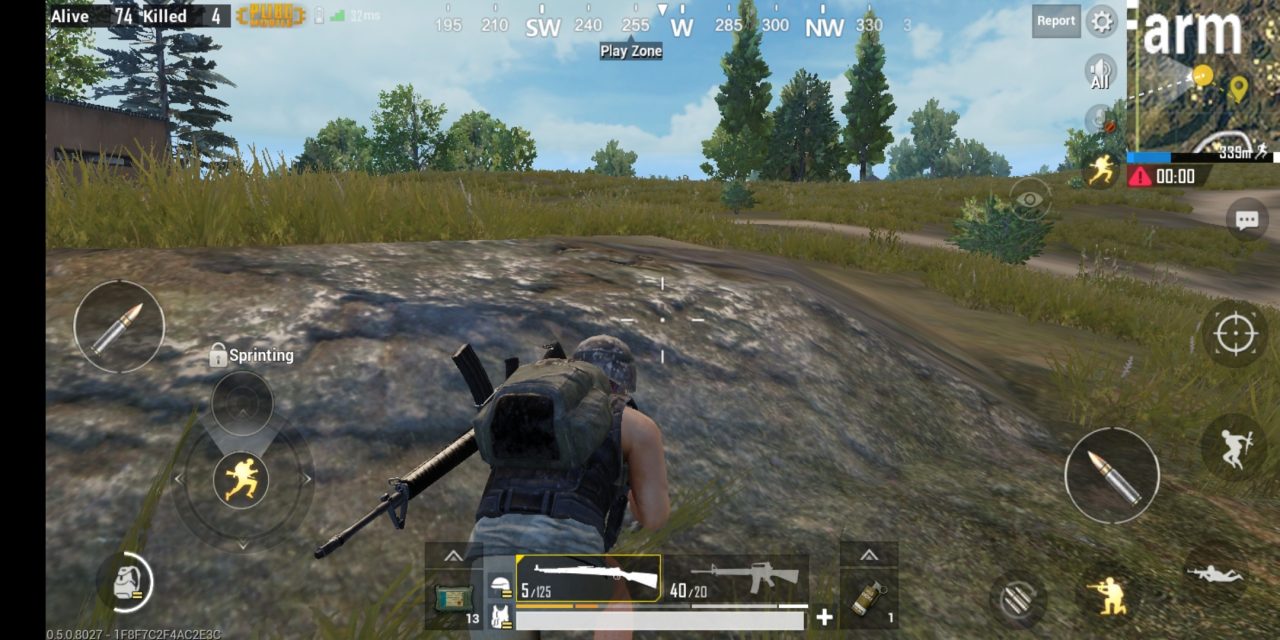
Playing games in casual occurrences are no problem, though this is expected with the Kirin 970 performance. The OLED screen and big screen is a great combination of games like PUBG mobile or even AOV. The Notch screen is optimized as well for this as it makes it a solid black line to avoid any annoying interference.
When it comes to usability, Huawei really outdone themselves and cleaned up most of their user interface. Though there are a lot of features the P20 Pro can handle, the user menus are simple and categorized properly with search options for easier navigation.
The P20 Pro is now utilizing the latest Android 8.1 with the EMUI overlay, what’s good about this update is that Huawei considered the notch as something bad instead of good. Being aware of the negative impressions about the notch, they provided the solution to have the option to remove the notch by simply making it a black bar.
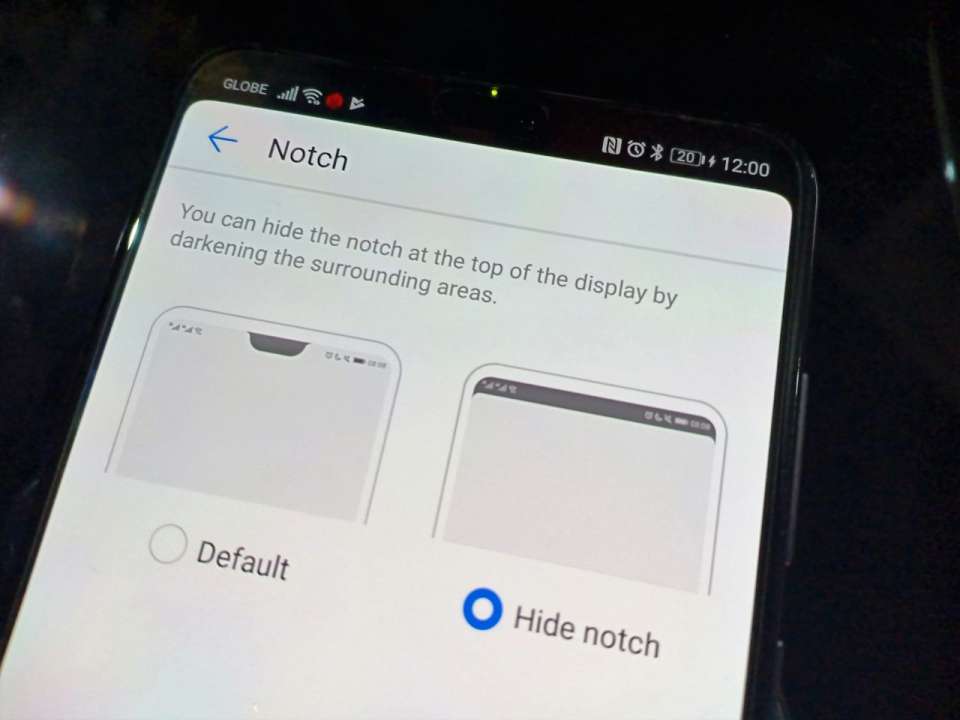
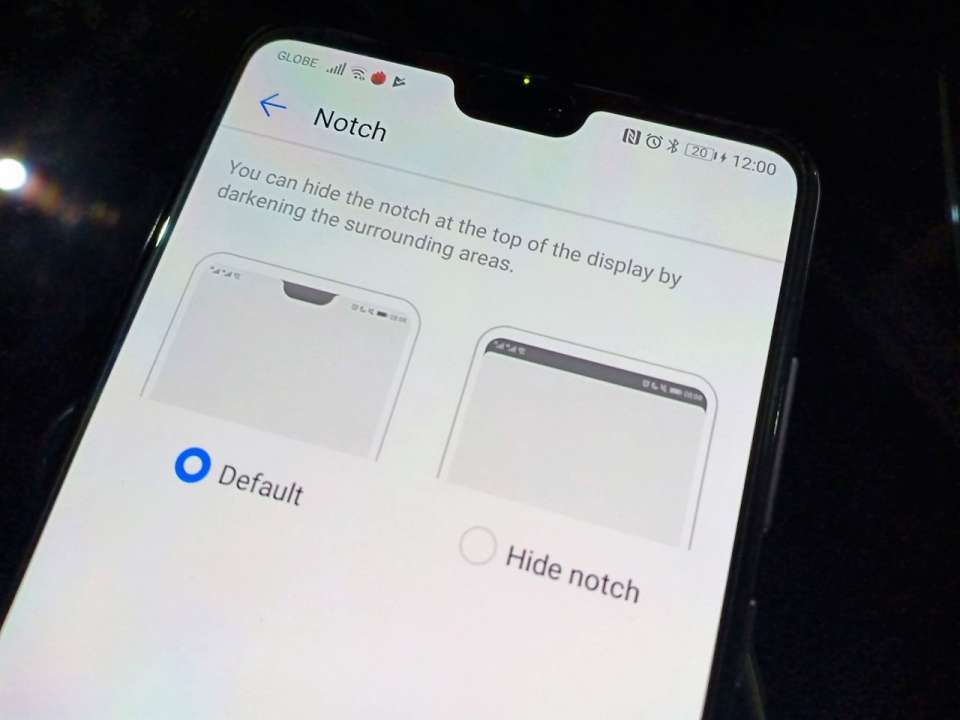
The Huawei P20 Pro is now enabled with a front fingerprint scanner, something we liked with the P10 series and we are glad that Huawei opted to maximize the front bezels by utilizing the space at the bottom.
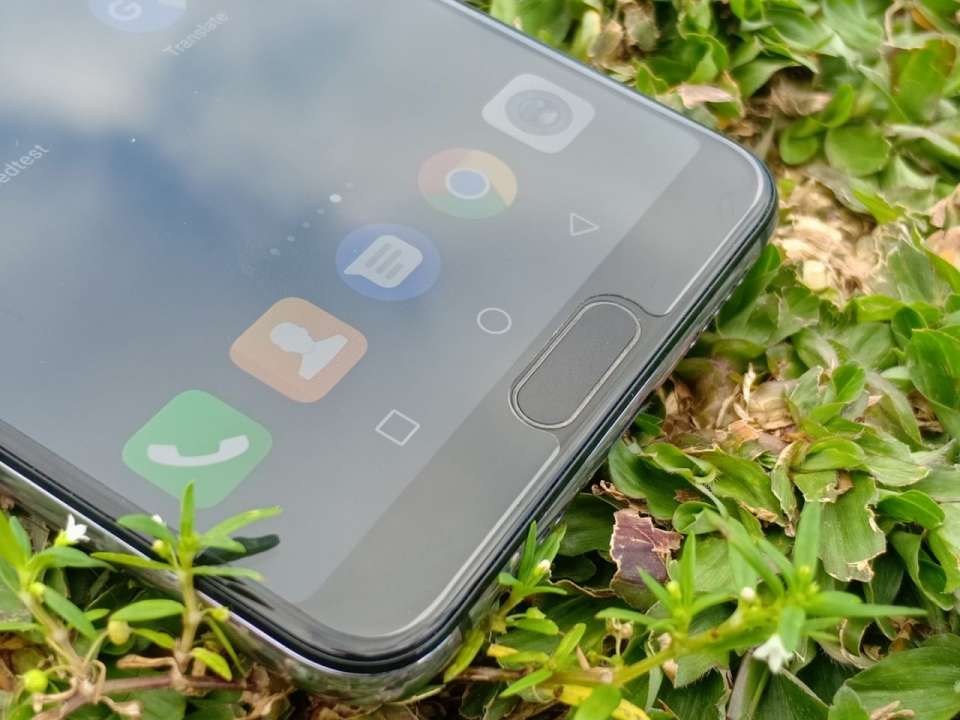
Fortunately, Huawei also included a face unlock technology for options to unlock the phone in three ways. Face, Finger and code, all can be utilized properly in various conditions. Though the face unlocks technology of Huawei is fast, it doesn’t work well in dark conditions as compared to the face unlock of One Plus and OPPO.
But still, we prefer the fingerprint sensor at the front as this won’t require you to lift the phone just to access the fingerprint at the back like with other phones.
The P20 Pro have 3 Leica certified lenses, these are the telephoto lens with 8MP sensor, 40MP RGB sensor lens and the 20MP Monochrome sensor lens. The logic is still the same as Huawei combines the result of the RGB and Monochrome into one output for more details.
But this time the Telephoto lens of the P20 Pro can assist in giving 3x optical zoom, 5x hybrid zoom and up to 10x digital zoom.
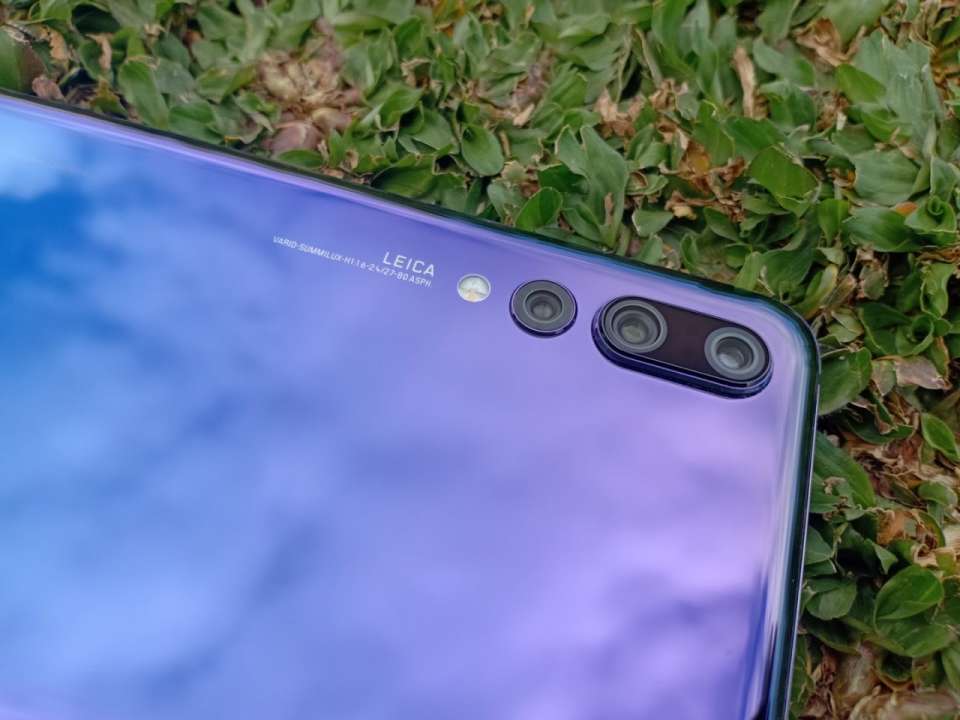
One good feature of the Huawei P20 Pro is the Master AI feature, this enables the camera to detect hundred of elements to determine 19 scenarios best to fit your photo. What’s good about the P20 Pro is that it prioritizes people for auto-detection and gives you the priority to do portrait shots with good bokeh in the background.
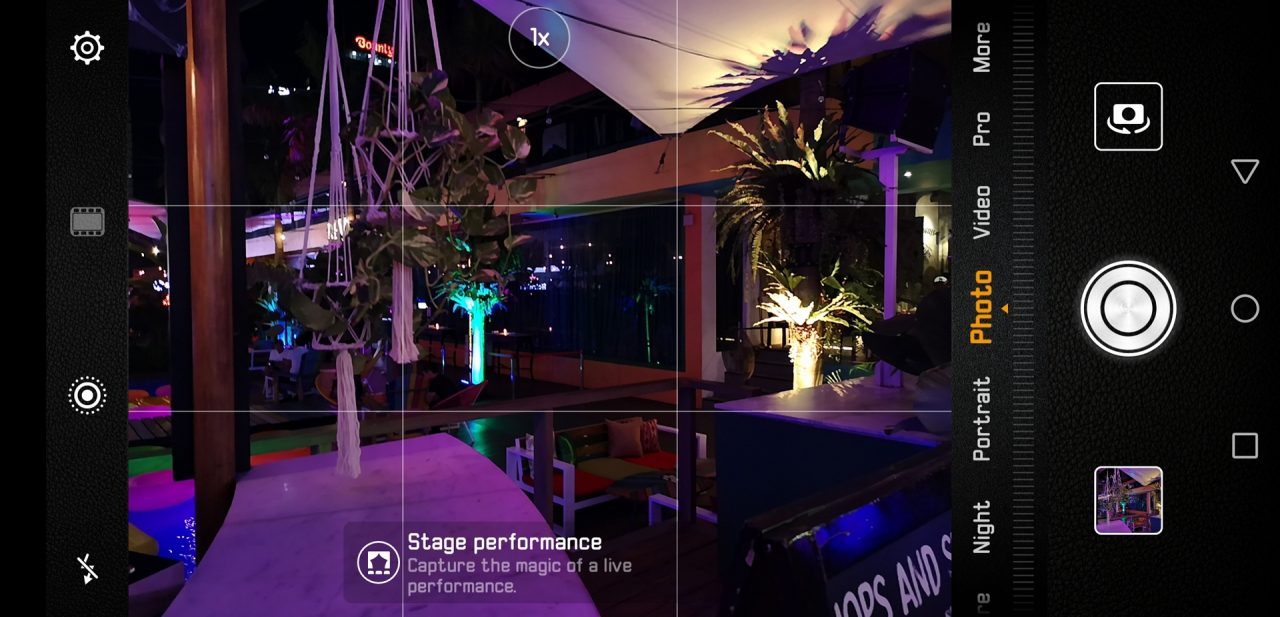
In this scenario, a night pool scene is detected as a stage performance due to the dancing lights in the area. At the same time, the triple camera setup was able to take good details in night time and still maintain it natural looking like night time.
Master AI scenarios: cat, food, group, natural colors, close-up, night shot, text, greenery, portrait, dog, fireworks, blue sky, flowers, stage, document, sunset, snow, waterfall, and beach.
Taking photos of plans will enable Greenery mode for better contrast and sharpness of plants, giving it emphasis and great for close to macro based shots.
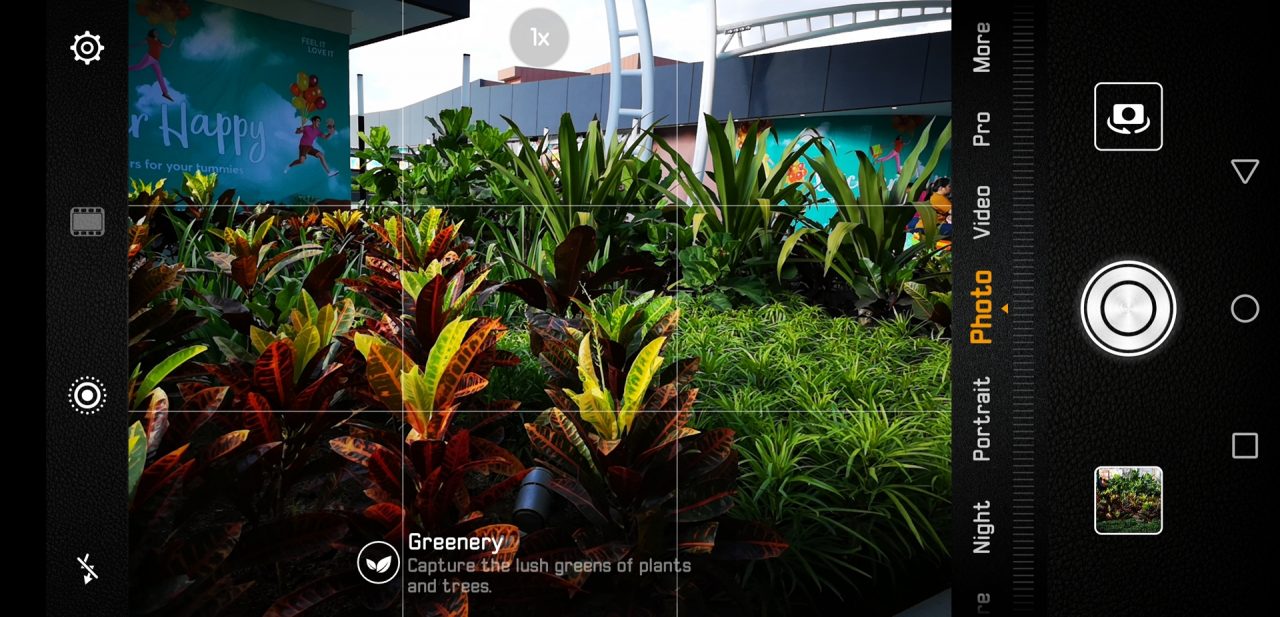
The Master AI will automatically change the scenario, though a quick 1-second pause will be felt if you allow the Master AI. Just in case you don’t like the changes, you have the option to close the scenario or temporarily close the Master AI function. Though if you just closed the function, shaking your phone and pointing at the same target will re-enable the same scenario…thus making it annoying at some point.
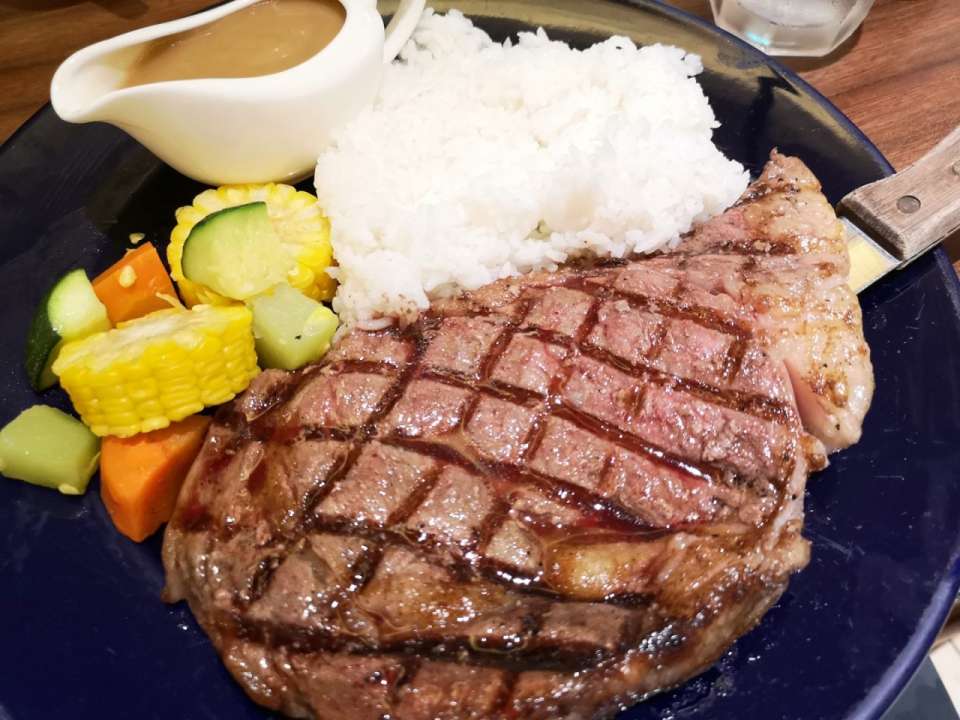
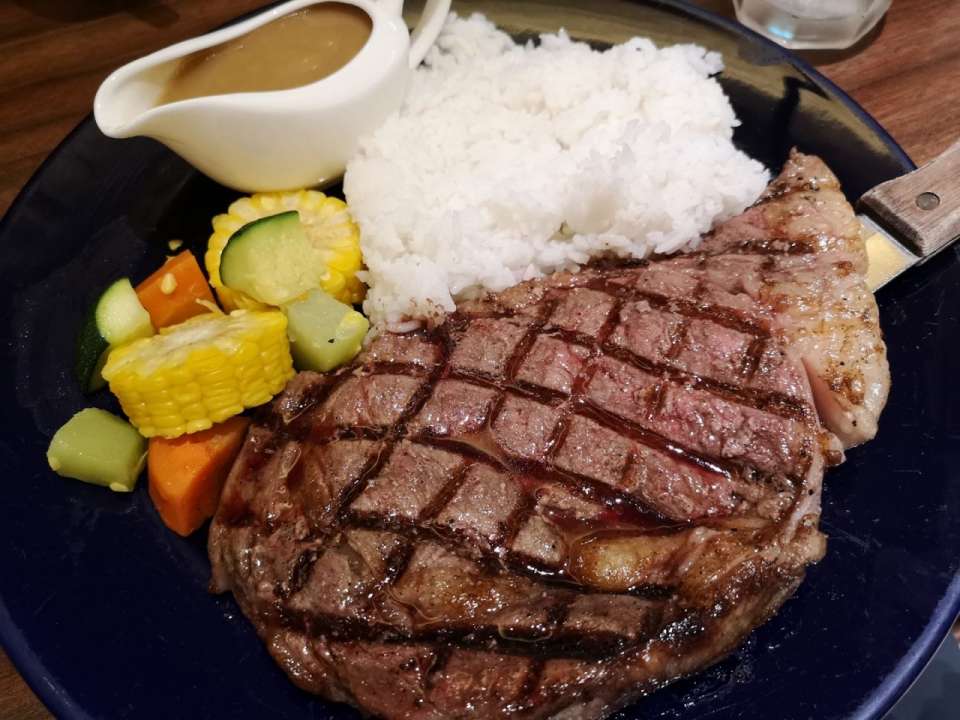
Now the results of the Master AI is subjective to the subject, scenario, and object. As you can see in the result here in the photos for the food, the steak is actually more appealing in the one without AI. But the Master AI adjusted to bring out the shine of the oil and more details, for this one its really subjective.
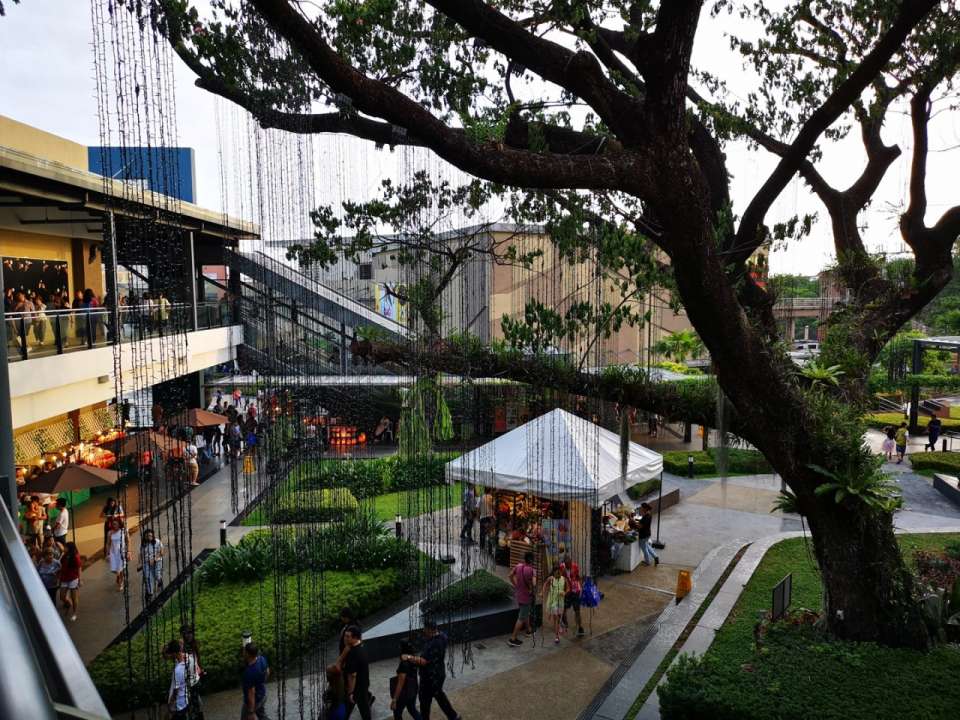
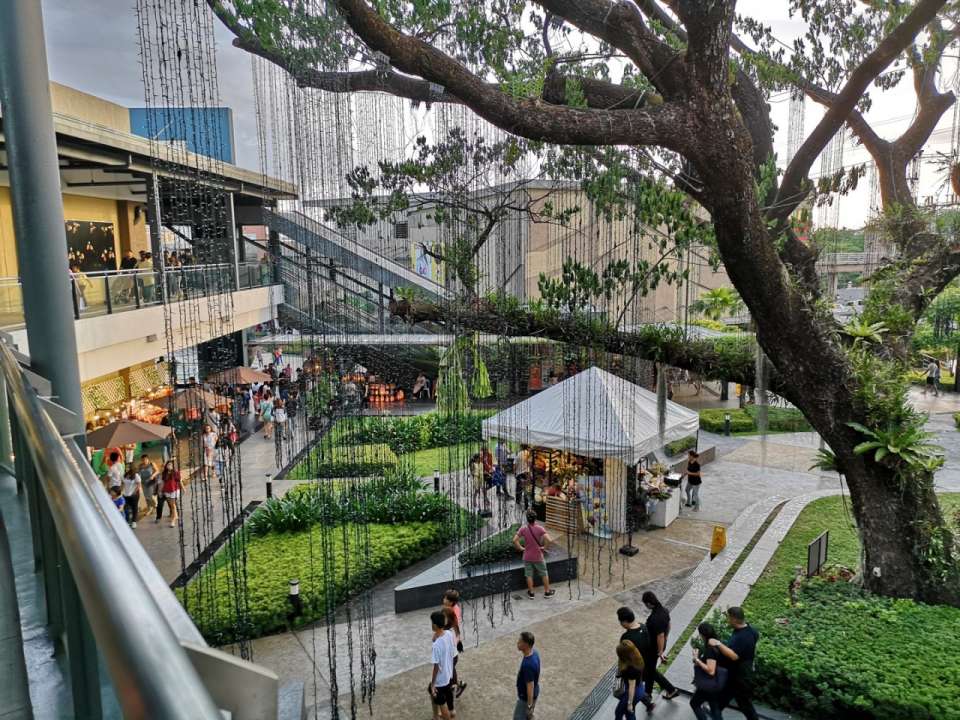
But in this example of a garden of UP Town Center, the photo with AI is more appealing and can get more Facebook / Instagram likes.
Thanks to the 8MP Telephoto lens and the 40MP RGB Main lens combined, the P20 Pro can do 3x looseless zoom, 5x Hybrid Zoom and 10x Digital Zoom that is really astonishing for a smartphone. We taken this smartphone in several areas and we aren’t joking of the zoom capabilities.
The argument is that will you even use the x10 zoom photos? At certain scenarios, why not as its the best you can do right now. But the reall hero here is the astonishing details even at x5 zoom, its enough to give advantage in concerts and even large crowds to get a better view.
Details are clear enough to be read, yes its digital zoom when it comes to x10 but you don’t get that right now with any other phone.
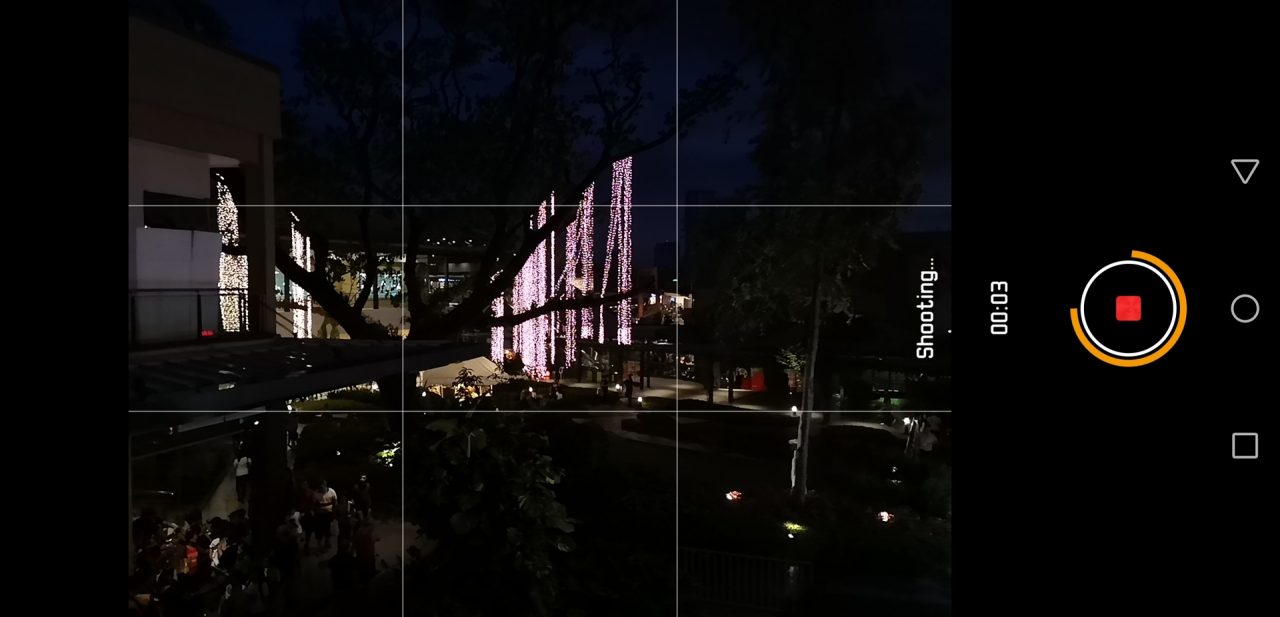
Another amazing feature the P20 Pro possesses is the Tripod Night mode, its able to simulate a tripod to do long exposure shots of a scenery you want. Meaning, you don’t need a tripod if you want a brighter photo.
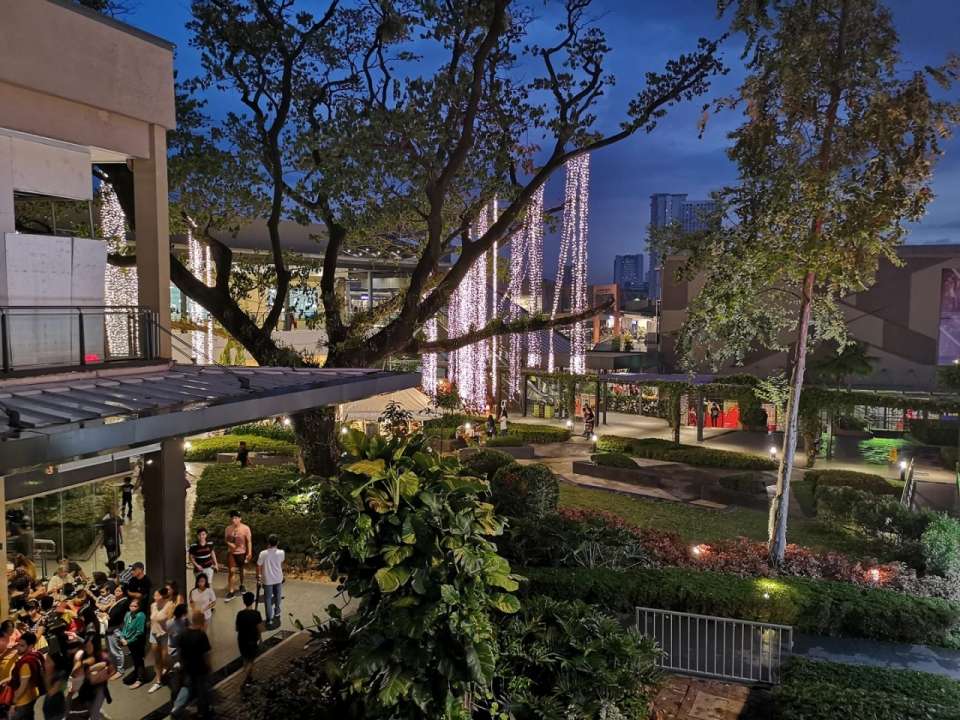

Photos resulting to the tripod mode does result to some artifact and even blurring when there are moving objects. But imagine using this in night scenarios like beaches or mountains, even other phones can’t produce the same level of brightness.
The P20 Pro’s 40MP camera mode is also available without any use of Zoom, but the problem is the light processing. It’s not suitable in night conditions, more of broad daylight scenarios for the best outputs.
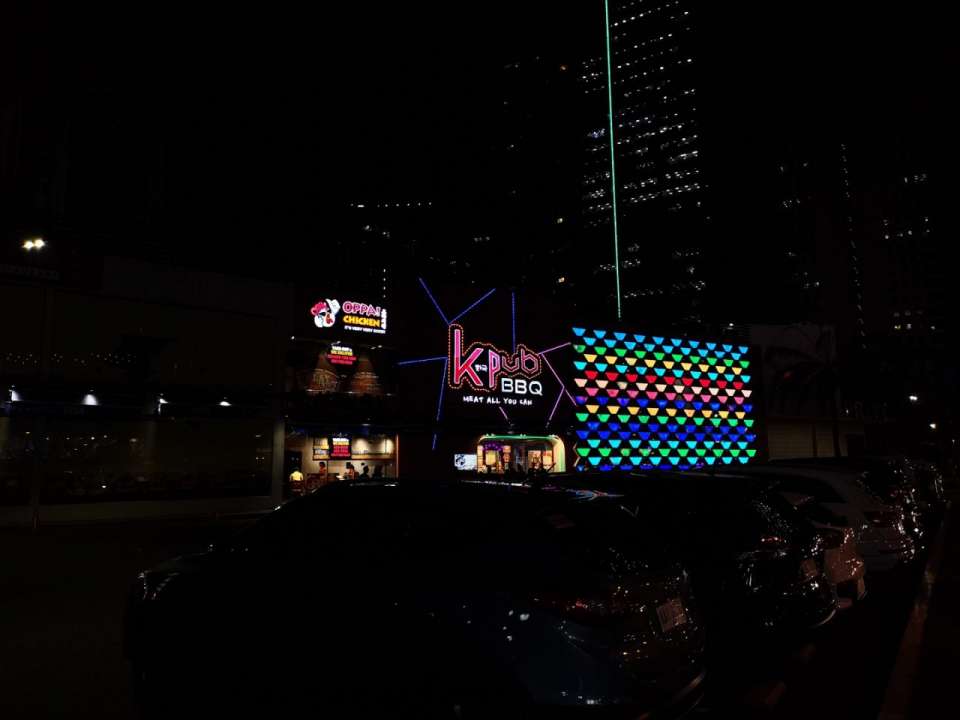
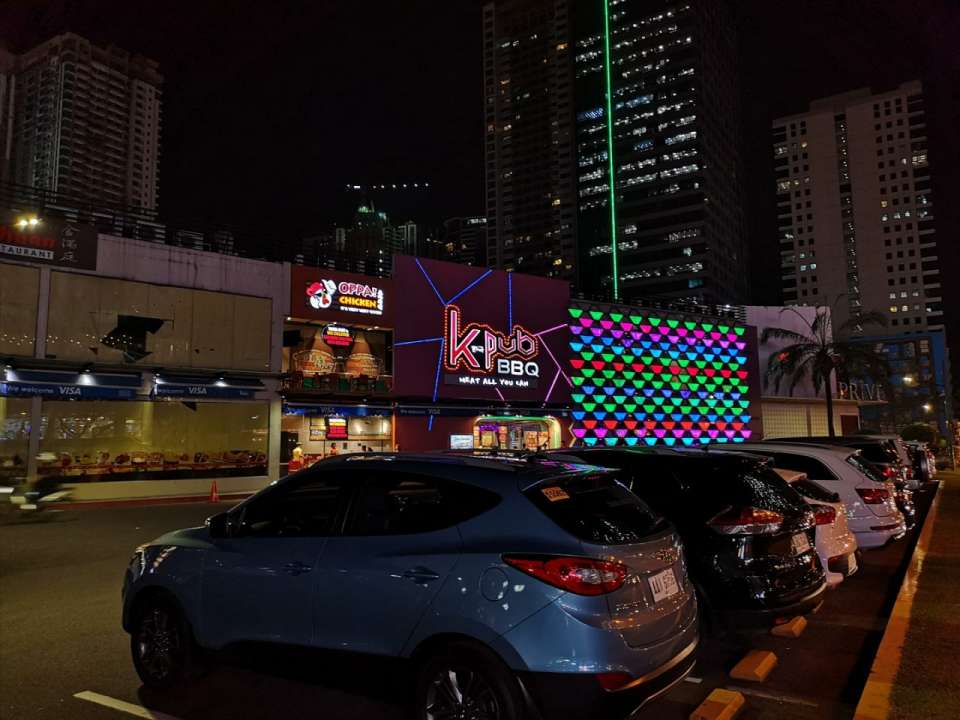
As you can see here, the 40MP mode struggles to capture more light in the background and just focuses on the LED lights. Leaving minimal details and perhaps undesireable photos.
Each photo averages around 3.5MB to 5MB for the 40MP resolution, while the 10MP resolution can range from 1.5MB to 3.4MB in our experience.
Overall the camera shots are stunning and delivers a lot of details. This is great for photographers that desires for more details in a small form factor. Honestly, this can really combat an SLR in terms of performance and usability.
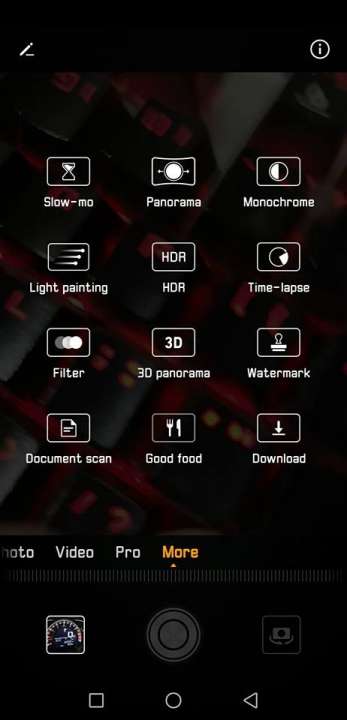
The P20 Pro also offers 960fps slow-mo video, document scan, panorama, time-lapse, monochrome mode, filters, light painting, 3D panorama, watermarking, document scanning and even good food.
The P20 Pro has two speaker grills at the bottom, but don’t be fooled as only one works (Right). Along with the earpiece speakers, they work to create a stereo type speaker delivery.
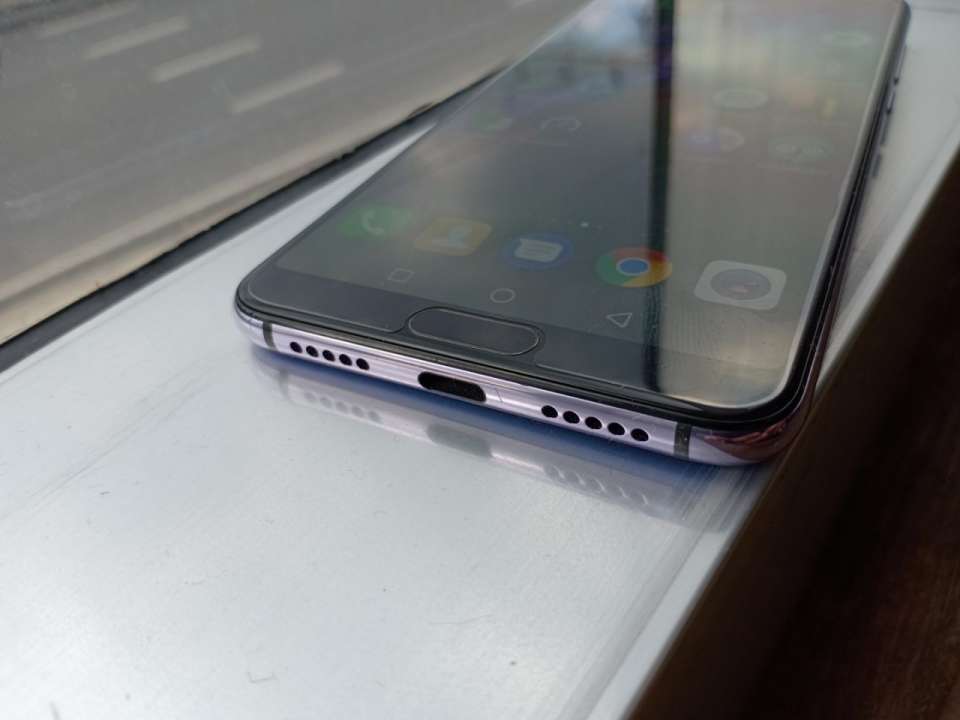
Audio is clear and loud, though the top speaker earpiece doesn’t contribute much but more of surround sound effect. So the overall speaker working is still at the bottom, so avoid blocking it as much as possible.
Additionally, the earpiece is also circular making it harder to place into your ear. Even the slight misalignment to your ear hole will result to drastic volume changes, so you have to be aware of placing your ear to the earpiece to avoid loss of volume in calls.
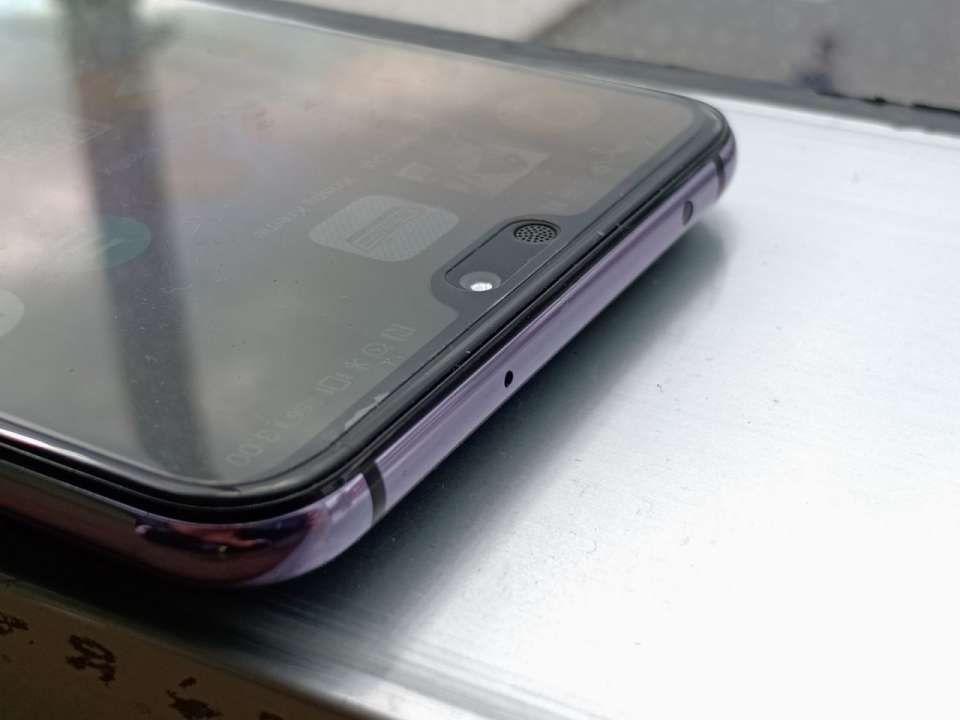
Lastly, the vibrator in the P20 Pro isn’t strong as expected. The vibrations are short burst vibrations that can’t even make a sound enough to be heard. Its intentionally meant to become more of a haptic feedback for keyboard strokes, but its vibration is weak when it comes to waking you up in your alarm.
The P20 Pro has a weight of 180g, a tad heavier than most phones we have handled. This is despite the smaller 6.1″ screen footprint, all because of the 4000mAh battery inside the smartphone.
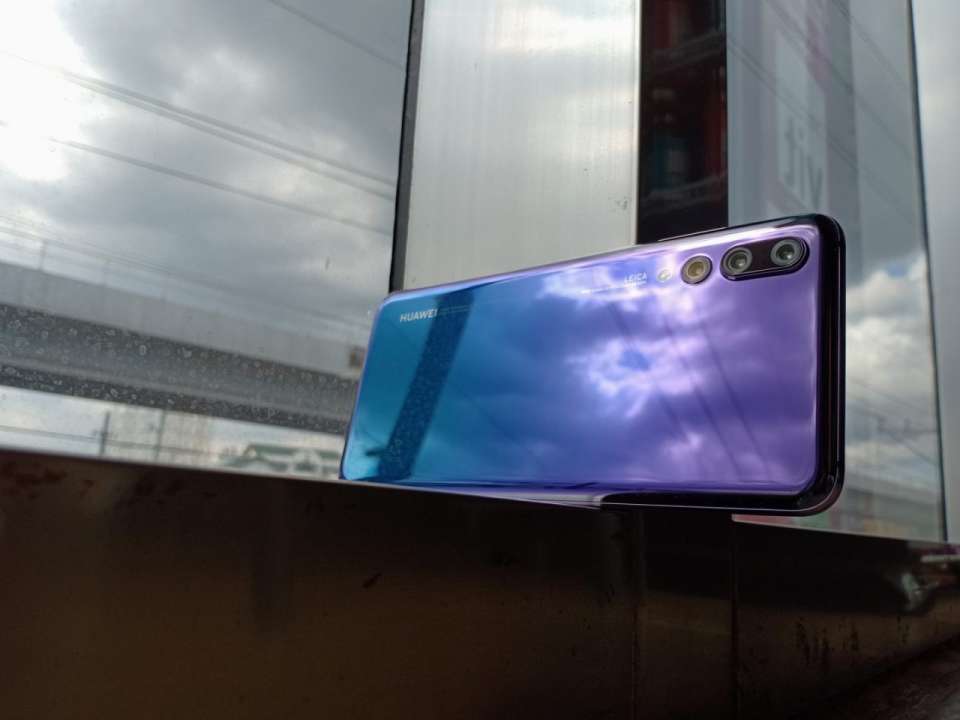
Our experience with the P20 Pro with decent 4G connection and Wi-Fi at home gives us a whole day of charge. You can leave around 8AM at home with still 20% by 10PM, depending on how heavy you really play, use or surf using your phone.
Stamina wise, the P20 Pro can handle a lot. Plus, it also comes with Huawei SuperCharge that can full charge in less than an hour and a half. For most cases, just be careful of not letting it get hot while charging, this will disable the SuperCharge mode and will revert to regular 2.4A charging.
The P20 Pro is definitely a flagship, but we will just quickly tackle other features mentioned. We liked how integrated the contact is with LinkedIn, it’s straight from the contacts to easily add new acquaintances online.
The GPS navigation in the P20 Pro is slightly slower as compared to other devices, its like we are already in the turn point before the navigation will say to turn. It’s not an hassle for places we are aware, but it does get annoying when travelling to places you don’t know.
Knocking twice with one knuckle will activate the screenshot, while knocking twice with two knuckles will activate the screen recording. This feature is really useful in our experience and its not prone to accidental activation.
Another this is that using the knuckles, you can draw to take a screenshot of an item you want. Though this is thoughtful, there are a lot of accidents where our finger is detected as a knuckle, making this feature annoying more than useful.
A delight we see is that Huawei still keeps the IR blaster with the P20 Pro, something other brands like Samsung already let go in their devices. It may not be that useful everyday, but its nice in situations you need a remote especially activating TVs or Aircon units.
Lastly, don’t forget to prepare a new screen protector or avail a tempered screen glass protector. The included screen protector easily gets bubbled and lacks durability, we can say it’s good for 2 weeks max before you will encounter some bubbles.
When it comes to photography, Huawei put themselves into the top map of mobile photography with the P20 Pro. It’s no doubt that it challenges the other mobile smartphones in different fields of photography such as low light, AI functionality, and even portability.
Paired this smartphone with a gorgeous body, amazing performance, long-lasting battery life and not to mention IP67 water and dust resistant. We definitely have a winner worth considering for Php44,990. Considering this phone has 128GB internal storage and 6GB of RAM, I believe it’s more than enough to handle the next 2 years of smartphone usage.

What we like about it
What we hate / needs to improive
The overall package of the P20 Pro is definitely a refresher among flagship smartphones, not only they were able to deliver a new level of mobile photography but also offer a solid flagship that is fit for today’s demanding smartphone world. We award the Huawei P20 Pro our seal of approval as a 100% satisfying flagship smartphone.
